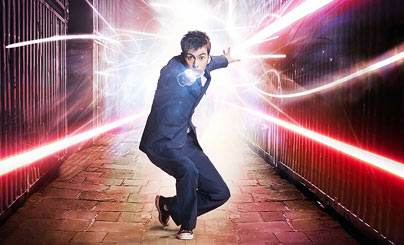 When Doctor Who was resurrected in 2005, it featured actor Christopher Eccleston as the ninth incarnation of the Doctor. You see, as a Time Lord, the Doctor has the power to regenerate whenever mortally wounded. But it’s not as easy as that — he also changes his appearance and personality. It’s a clever way for the show to exchange actors without too much of a fuss.
When Doctor Who was resurrected in 2005, it featured actor Christopher Eccleston as the ninth incarnation of the Doctor. You see, as a Time Lord, the Doctor has the power to regenerate whenever mortally wounded. But it’s not as easy as that — he also changes his appearance and personality. It’s a clever way for the show to exchange actors without too much of a fuss.
When Eccleston’s Doctor regenerated into the Tenth Doctor, played by David Tennant, there was a bit of an outrage. People threatened to quit watching the show, and Tennant was criticized for his portrayal of the doctor in the closing minutes of the series one finale, “The Parting of the Ways.” Over the course of the next three seasons (and eight specials), however, Tennant’s Doctor became one of the most beloved actors to ever portray the benevolent alien — he was even recently voted the best Doctor by fans. So when his time came to regenerate at the end of “The End of Time, Part Two,” there was obviously some dissonance among fans. Most were sad to see Tennant’s Doctor, whose infectious personality and trademark swagger will be badly missed. And there was still the criticism of new actor, twenty-seven-year-old Matt Smith, who came in to take Tennant’s place (however, something tells me that he’ll be as beloved as Tennant was before long).
But before we look forward to see what Smith’s role as the Doctor will bring, let’s take a look back at Tennant’s Tenth Doctor, and his greatest hits. With the help of writers like Russell T. Davies and Steven Moffat (who is the new showrunner after Davies left the show with Tennant), the Doctor solved some great mysteries, and showed off his eccentricities. Let’s take a look back at the Tenth Doctor’s five greatest cases.
 “The Waters of Mars” — Special, 2009
“The Waters of Mars” — Special, 2009
In this, Tennant’s penultimate episode (if you count both parts of “The End of Time” together, that is), we begin to see the Doctor fighting against time itself. When he pilots the TARDIS to land on Mars, he only wants to enjoy himself (as he states when questioned, his name, rank, and purpose are “The Doctor, doctor, and fun”). However, he finds himself landing on the red planet at a very bad time: the year 2059, on the day that humanity’s first base on Mars is to be destroyed for unknown reasons.
Before he can bring himself to leave, he is captured by the team on the base: eight colony members led by Captain Adelaide Brooke. The Doctor is familiar with her, mostly because he knows that she is destined to die and set off a chain of events that will inspire her descendants to go into space and establish peaceful relations between humans and extraterrestrial species. This event, as the Doctor puts it, is “fixed in time.”
That’s when the fun begins. And by fun, we mean a water-born parasite slowly beginning to turn the entire crew into zombies which can spray infected water all over anyone, spreading the parasite to everyone involved. It’s a rather dark episode, and not just because of the zombified faces of the parasites’ victims. Amid the claustrophobia of the base, which is slowly starting to be flooded by the water, the Doctor begins to let his power go to his head; he thinks that he’ll be able to stop fate and rescue the crew, which looks more and more unlikely with each crew member who is infected (some very sad and chilling scenes here, which are beautifully written). Adelaide, finally convinced that the Doctor is right and that she must die, decides to destroy the base, but not before the Doctor rescues here and two colonists from the base, transporting them back to earth in the TARDIS.
Here’s where the real zinger comes in. After seeing off the two colonists, Adelaide admonishes the Doctor for saving her life, as she had come to believe the “fixed in time” theory more than he did. Rather than risk changing the future, Adelaide takes her own life as the Doctor looks on sadly, realizing that he is becoming too powerful. As he goes to re-enter the TARDIS, he realizes that the time is coming for him to die, though with the closing moments of the episode, he shows his intention to fight this. It’s a great bit of character development, as the Doctor finally tries to stop fate instead of just accepting it. And at times, this episode can be rather scary too, in a sort of 28 Weeks Later kind of way.
 “Silence in the Library”/”Forest of the Dead” — Series 4, 2008
“Silence in the Library”/”Forest of the Dead” — Series 4, 2008
Doctor Who occasionally has the affinity for double (sometimes triple) episodes. “The End of Time” was an example of this, and “Silence in the Library”/”Forest of the Dead” is another example. Though they have two different titles, they’re basically one long mega-episode, and a brilliant one at that.
In this episode, they’re not fighting water, but they’re fighting something just as omnipresent — shadows. Penned by Steven Moffat, this episode is set in the largest library in the universe, which has fallen into absolute abandonment. When the Doctor and his companion Donna Noble set foot into the library (which is the size of a planet), they’re looking forward to seeing it bustling with people — but there’s no one there. While the library’s computer tells them that off the planet’s occupants, 4022 were saved, but there were no survivors. It then warns them to count the shadows.
When a group of explores stumble upon the Doctor and Donna, the duo meet River Song, who seems to have known the Doctor and possessed his sonic screwdriver. In fact, she not only seems to have known him, she seems to have loved him, and he loved her back — to the point where she knows his true name.
But meanwhile, one member of the expedition seems to have an extra shadow, causing the Doctor to realize that the Vasha Nerada have infected the library, thriving in the paper environment. The Vashta Nerada are microscopic beings that serve the function of a piranha — they eat things. And when they travel in packs, they resemble shadows, making them difficult to spot until it’s too late.
What follows is a wonderful cat and mouse chase that has a bittersweet ending. And it actually leaves one mystery — the origin of the future Doctor’s relationship with River Song — unsolved. But that doesn’t mean that we won’t see her again; she’s slated to return in the upcoming fifth series alongside Matt Smith’s Eleventh Doctor, with whom she’ll presumably enter a relationship.
“What could possibly go wrong?”
This is the last Davies-penned episode to make the list, and its certainly his finest episode in his entire tenure on the show. It’s a monster-based episode where you never see the monster. It’s claustrophobic, it’s perfectly scripted, and has a wonderful ending that immortalizes a peripheral character within the history of the show.
In the episode the Doctor goes for a tour on the crystal-surfaced planet Midnight, where he decides to go on a train-driven tour of the planets surface. The train is sealed in because the sunlight of Midnight is deadly. There are a few other passengers onboard the train, and the Doctor gets to know them, being congenial and friendly.
The train breaks down halfway through the ship, and a knocking is heard on the roof from outside. Soon, the monster outside attacks, ripping away the cockpit and apparently possessing one passenger, Sky Silvestry. The Doctor tries to talk to her, but she only repeats the words the passengers say, eventually moving on to only repeat the words the Doctor says. The delay between her repetition and his actual speaking grows smaller and smaller until she begins to speak the words before he actually says them. The passengers begin to accuse the Doctor of what has happened, and it’s up to the Doctor to find out what is happening — even when he begins to involuntarily repeat everyone.
This episode was very taut, and used very little special effects (you never see the monster), relying instead on the performance of Tennant and the guest cast. It definitely worked, and even made light of the strange situation by the Doctor’s attempts to trick Sky into slipping up in her repetition of him. “Roast beef. Bananas. The Medusa Cascade. [Beat] BANG! [Rapidfire] Rose Tyler Martha Jones Donna Noble TARDIS! [beat] Shamble-bobble-dibble-dooble. [beat] Oh, Doctor, you’re so handsome. Yes, I am, thank you. A-B-C-D-E-F-G-H-I-J-K-L-M-N-O-“
“Blink and you’re dead…”
I’ll admit, I was hesitant to put this on the list. That’s not because it’s not a great episode; it’s an absolutely brilliant episode, and one of the best of the entire show. My only qualms with including it on the list of the Tenth Doctor’s greatest episodes was that the Doctor appears very, very infrequently within the episode. Instead, the episode rests on the shoulders of a guest star (something you’d never see happen in American television), with the Doctor and his then-companion, Martha Jones, appearing in video tapes throughout the episode and then once at the end, as they attempt to guide Sally Sparrow into rescuing the TARDIS from the angels and bringing it back in time to rescue Martha and the Doctor, who were sent back in time by the angels.
The episode’s monsters are stone angels that appear to be weeping. They don’t seem very dangerous, right? Wrong. As the Doctor puts it: “Lonely assassins, they used to be called. No one quite knows where they came from, but they’re as old as the Universe – or very nearly. And they’ve survived this long because they have the most perfect defense system ever evolved: they’re quantum locked. They don’t exist when they’re being observed. The moment they’re seen by any other living creature, they freeze into rock. No choice, it’s a fact of their biology. In the sight of any living thing they literally turn to stone. And you can’t kill a stone. ‘Course, a stone can’t kill you either, but then you turn your head away. Then you blink, and oh yes it can. That’s why they cover their eyes. They’re not weeping, they can’t risk looking at each other. Their greatest asset is their greatest curse. They can never be seen. Loneliest creatures in the Universe. And I’m sorry. I am very, very sorry, it’s up to you now.”
The creatures are absolutely amazing, and they are so very scary. You never see them move, but when you see where they move to, it’s terrifying. The super-fast angels feed on humans by sending them back in time, feasting on the energy of what their life would have been if they had not been sent back in time. “The only psychopaths in the universe to kill you nicely. No mess, no fuss, they just zap you into the past and let you live to death,” the Doctor remarks.
A product of the creative brilliance of Steven Moffat, the weeping angels will reappear in series 5 to be faced down by the new Doctor. I can’t wait.
 “The Girl in the Fireplace” — Series 2, 2006
“The Girl in the Fireplace” — Series 2, 2006
Not only is “The Girl in the Fireplace” possibly the best episode of Doctor Who to date, it’s quite possibly the best episode of television I’ve ever seen. It’s a very beautiful standalone episode that manages to pull off funny and hearbreaking, romantic and scary. The Doctor falls in love, but time itself snatches his love away from him.
The Doctor, along with his companions Mickey and Rose, lands on a derelict ship floating in space. While exploring, the Doctor finds an eighteenth century fireplace inexplicably placed among the futuristic technology of the ship. Upon travelling through, he discovers that he is transported to pre-revolutionary France, and he befriends a child Madame de Pompadour, Reinette, after rescuing her from a mysterious figure made entirely out of clockwork. The clockwork creatures need her brain in order to restore the ship back to its former glory, having harvested the rest of the crew for parts. The androids have opened time windows into her life throughout the ship, and are trying to find her at the age of thirty-seven, when they believe her brain would be compatible with the thirty-seven year old ship.
The Doctor travels back and forth between the fireplace and the ship, only discovering that each time he returns back through the fireplace, time in France has passed dramatically. A moment in the real ship could be years in France, causing the Doctor to finally lose his growing romance with Reinette as the time window closes forever.
It’s a heartbreaking episode which demonstrates that the Doctor will eventually end up alone, developing the sadness of the character, as perfectly demonstrated by Tennant. It also has a neat twist at the end (which I won’t reveal) that makes the episode all the more surreal.
It, like “Blink” and “Silence in the Library”/”Forest of the Dead” is a Moffat-penned episode, making series 5 of the show look all the more brighter with Moffat as showrunner. And even though Tennant, who portrayed the Doctor throughout the five episodes listed, will not be portraying the Doctor, he leaves behind a great legacy as the Tenth Doctor.
 Follow Us
Follow Us
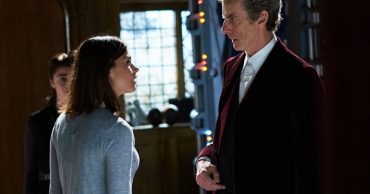
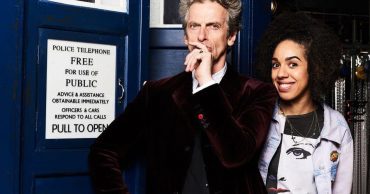
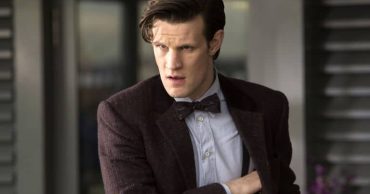
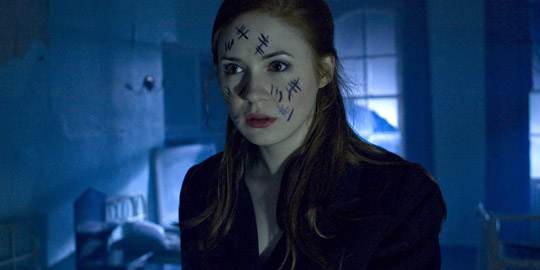
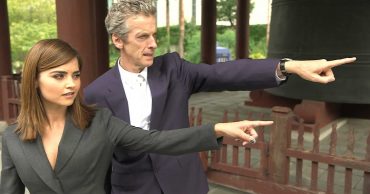
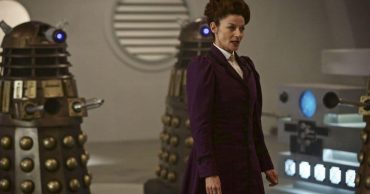
Good list, but I still think Human Nature/ The Family of Blood beats all of these.
"Planet of the Ood" was another of my favorite Tennant episodes for the way it dealt with the theme of slavery, and for the way it further fleshed out Donna Noble's character beyond her brash and boisterous persona, showing a more tender and caring side. Besides that, who doesn't love the Ood?
I agree that “Human Nature/ Family of Blood should be on this list, over Waters of Mars. And I would also replace midnight with The Empty Child